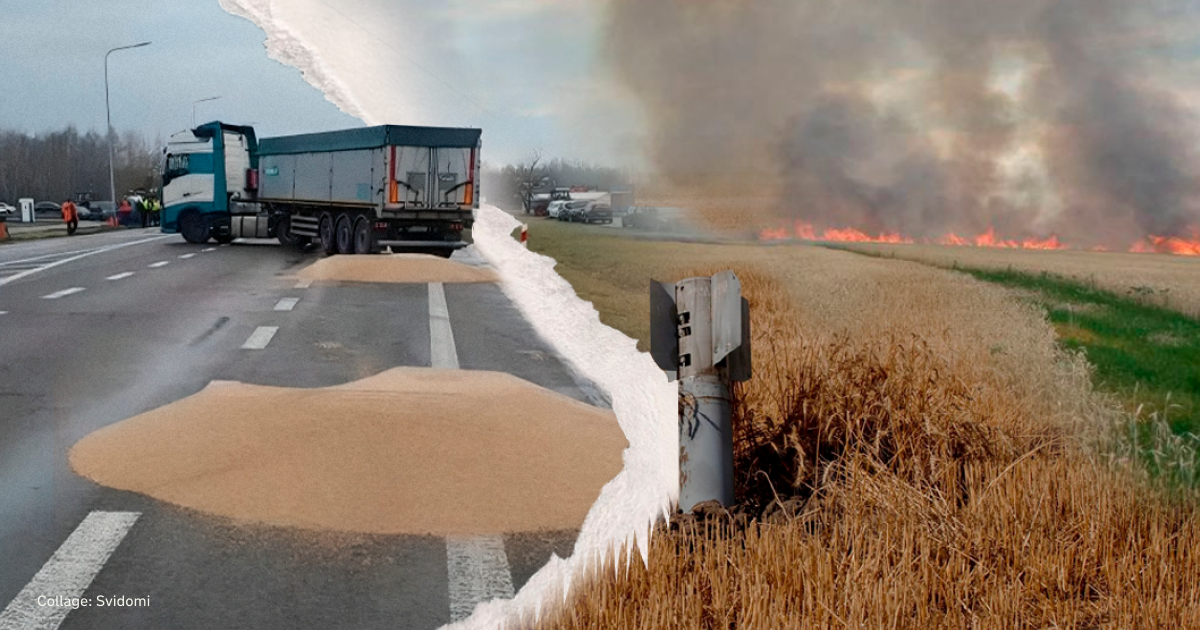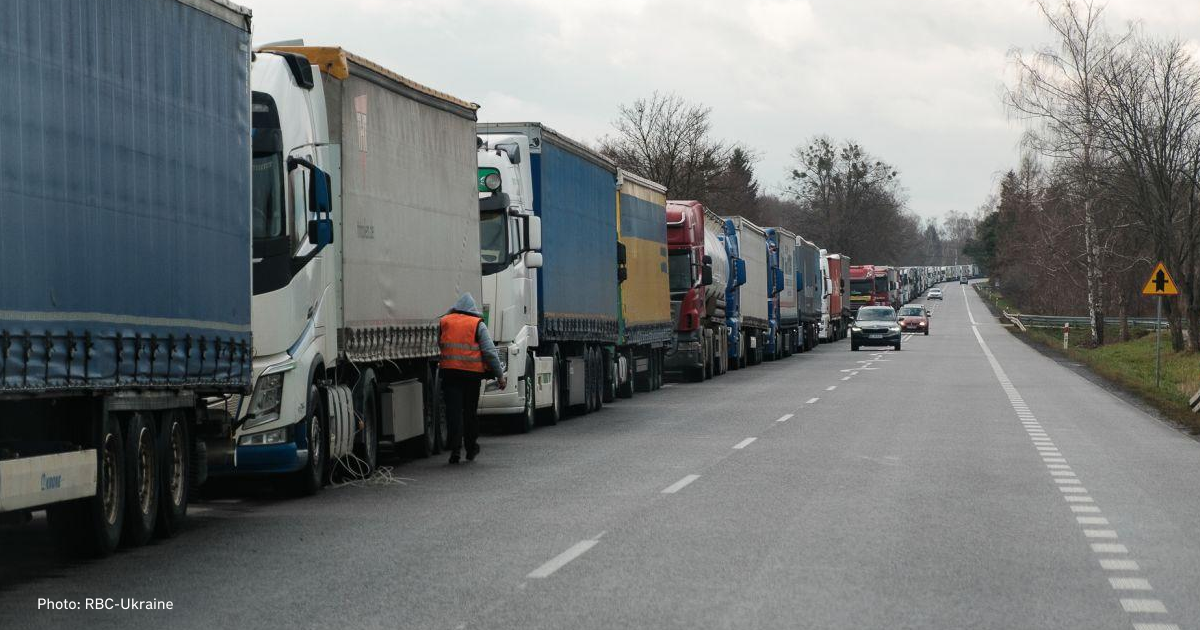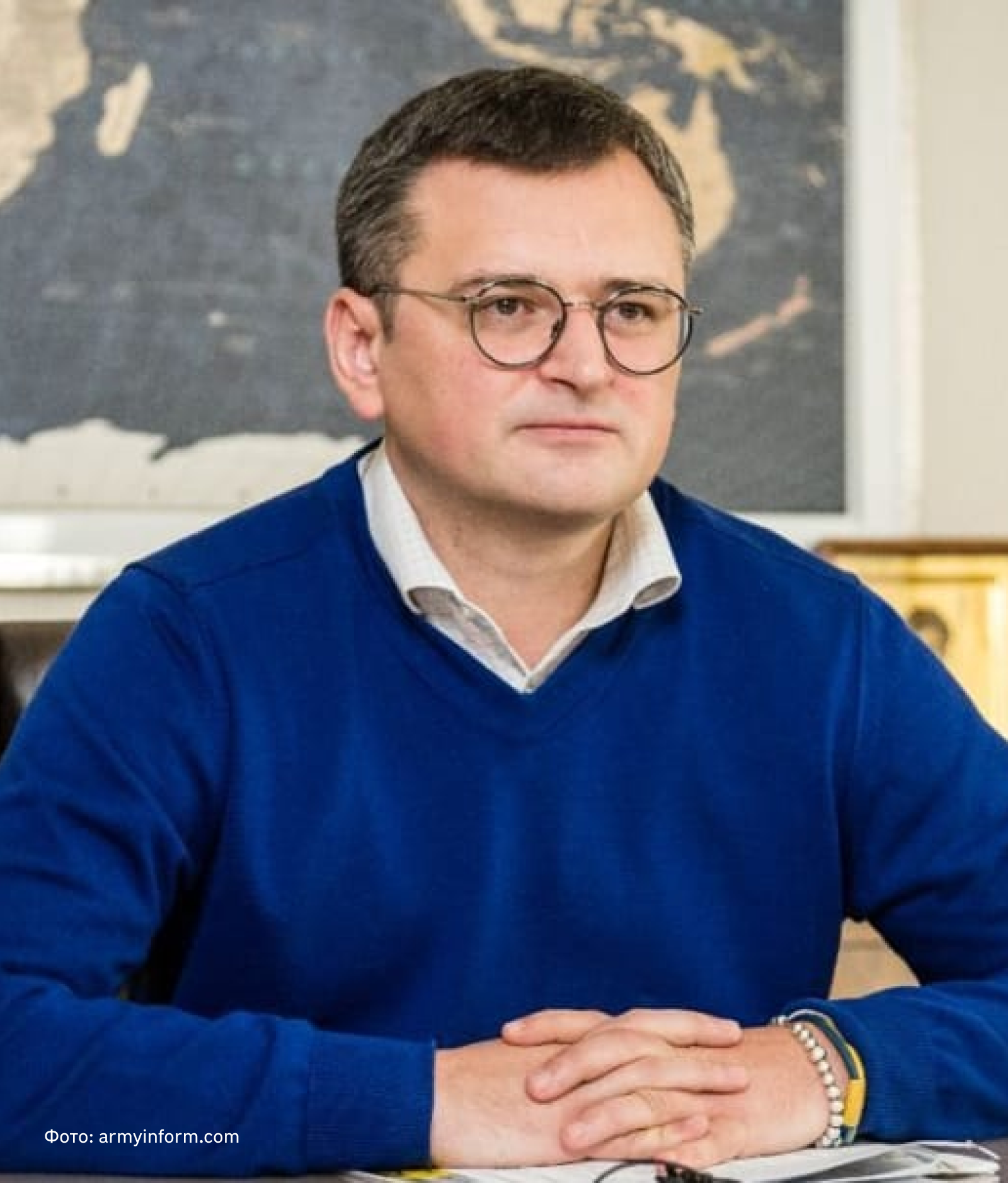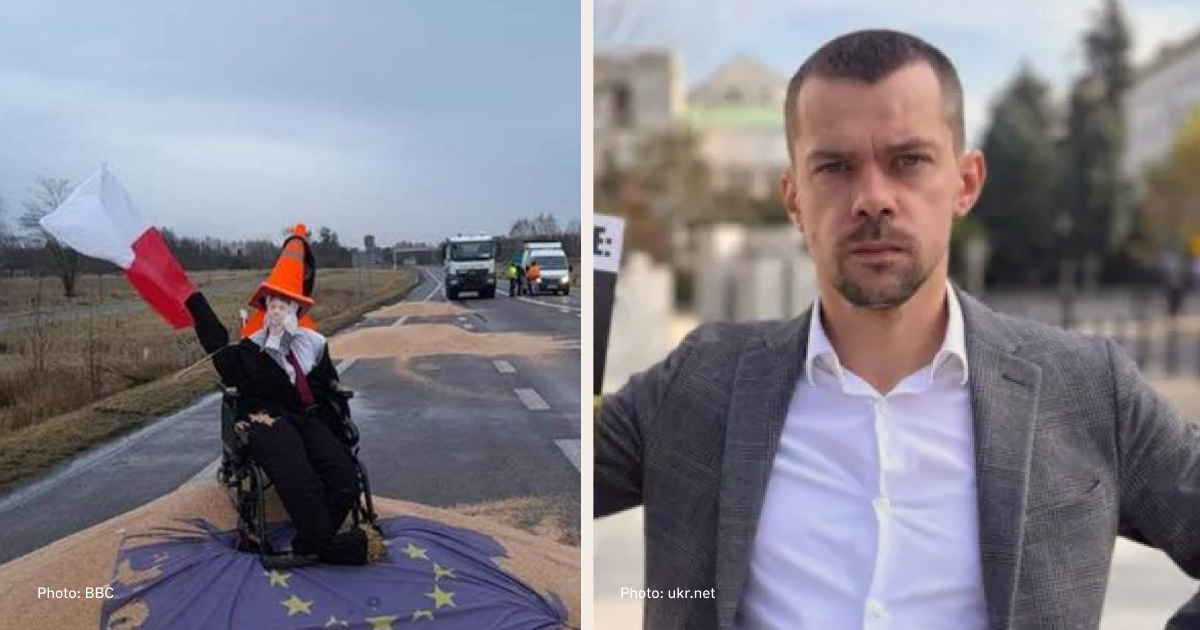Polish farmers scatter Ukrainian grain on the border. How does Ukraine respond?

What has happened?
Polish farmers protesting on the Ukraine border scattered grain from three Ukrainian trucks entering Poland.
Following the incident, the trucks returned to Ukraine, the Polish publication RMF writes.
The trucks containing the spilt grain were sealed after customs procedures. The grain was in transit to Lithuania.
"Three trucks driven by Ukrainian citizens entered Poland after customs procedures. The protesters blocked their way and, at some point, opened the semi-trailers, causing some of the grain to spill onto the road. The drivers returned to Ukraine," said Ewa Czyż, a spokeswoman for the Chełm police.
Police are investigating the incident, collecting evidence and interviewing witnesses. So far, law enforcement has not reported any detainees in the case.
Polish customs officers refuse to put seals on trucks with Ukrainian grain transiting to other countries.

"Today, Polish customs officers won't let trucks with such goods [grain] that Ukrainian customs and Polish customs have cleared out of the country and say they won't put seals on them,"
said Volodymyr Balin, vice president of the Association of International Road Carriers.
"Seals are required to ensure that the goods are guaranteed to pass through the territory of Poland. Customs officers refuse to put them on, arguing that the protesters at the border could break them again and damage the goods.
On February 9, 2024, farmers from all over Poland began a demonstration likely to last 30 days. The protesters will block roads and border crossings.
On February 12, protesters began demonstrations at two more border crossings, Zosin—Ustyluh and Uhryniv—Dołhobyczow.
"The protesters intend to allow passage of 3 trucks weighing more than 3.5 tonnes per hour," the State Border Guard Service of Ukraine reports.
In addition, the blockade of trucks was resumed near the Medyka-Shehyni checkpoint.
The protesters will let one truck through per hour.

At the same time, Polish farmers are blocking roads across the country. Farmers oppose imports of Ukrainian products because they allegedly do not meet EU standards, and local producers suffer because of their lower prices.
It will be recalled that on January 31, the European Commission officially proposed to extend the duty-free regime for exports from Ukraine for a year until mid-2025. However, it is less flexible than in the previous two years and considers the specifics of EU farmers. The new autonomous trade measures include quotas on the most sensitive products, such as poultry, eggs, and sugar.
What was Ukraine's response?
The Ministry of Agrarian Policy of Ukraine condemned the "deliberate destruction of Ukrainian grain by Polish protesters on the Ukrainian-Polish border". Such behaviour, according to the ministry, "has nothing to do with peaceful protests, neither legally nor morally".
"For two years of the full-scale invasion, Ukrainian farmers have been working under constant shelling and suffering huge losses. They get this grain extremely hard and sometimes at the cost of their lives," the Ministry of Agrarian Policy said.
Ukraine's Ambassador to Poland, Vasyl Zvarych, called on Poland to find and bring the perpetrators to justice.
"No civilised European country should tolerate such methods of protest... The Polish authorities should react decisively in the legal field to this shameful and insulting for Ukrainians (In the early 20th century, Ukraine experienced three periods of artificial famine created by the Soviet Union. During Russia's full-scale war against Ukraine, Ukrainians are harvesting grain under constant shelling - ed.) and most Poles crime and prevent such brutal actions in the future," Zvarych posted on his social media.
The Ukrainian Minister of Foreign Affairs, Dmytro Kuleba, also commented on the incident.

"Any farmer should know how hard it is to grow grain, especially in wartime. For the sake of friendly Ukrainian-Polish relations, those responsible for this provocation must be brought to justice,"
Kuleba said.
The mayor of Lviv, a Ukrainian city located 60 kilometres from the border, Andrii Sadovyi, also commented on the incident.
"Let's call a spade a spade. This photo shows Ukrainian grain spilt out of Ukrainian trucks by Polish but, in fact, pro-Russian provocateurs. The pseudo-blockade on the border continues. Such actions are despicable and shameful," the mayor of Lviv wrote.
Ukraine's Ambassador to the United States, Oksana Markarova, has noted that the most challenging but essential thing in such situations is to "resolve disputes constructively".
"To become closer, stronger and reduce the influence of provocateurs who, either on their own or under someone else's influence, constantly choose trigger topics to cause discord. This applies to grain, weapons, historical events and much more," Markarova added.
What do the protest organisers say?
The leader of the farmers' protests on the Polish-Ukrainian border, Rafał Mekler, responded to the Ukrainian side's criticism of the protesters' actions.

"The neighbours [Ukrainians] write that we are wasting grain (as the farmers decided), that we will face a fair punishment, I will deliberately skip the arguments about the Kremlin agent, that we are going to starve, that they provide us with food. It means that the average Mykola or Danylo does not understand what Western corporations, which they introduced in partnership with oligarchs, have done to Polish agriculture,"
Rafał Mekler writes.
The protesters covered one of the piles of scattered grain with the EU flag and made an effigy of Polish Deputy Minister of Agriculture and Rural Development Michał Kołodziejczak.

How does the Ukrainian agricultural sector operate during a full-scale war?
Due to hostilities, mines and the temporary occupation of territories, Ukraine does not cultivate about 25% of its agricultural land.

"What the occupier leaves behind will take at least several months or even a year to return to cultivation,"
said Taras Vysotskyi, Deputy Minister of Agrarian Policy and Food.
In April 2023, the Minister of Agrarian Policy and Food of Ukraine, Mykola Solskyi, said that 470,000 hectares of agricultural land in Ukraine were mined.
"Today, over 2,600 sappers from both public and private organisations are carrying out demining in Ukraine. With this capacity, it will take us more than 20 years to clear agricultural land alone," the Minister said at a meeting of G7 agriculture ministers.
In September 2023, the Prime Minister of Ukraine, Denys Shmyhal, said that 120,000 hectares out of 470,000 had already been returned to cultivation.
"The plan to clean up farmland is being implemented. We have inspected over 200,000 hectares out of 470,000 identified as a priority. About 120 thousand hectares have already been restored. Not only is the government working on this issue, we also have business involved," Shmyhal said.


